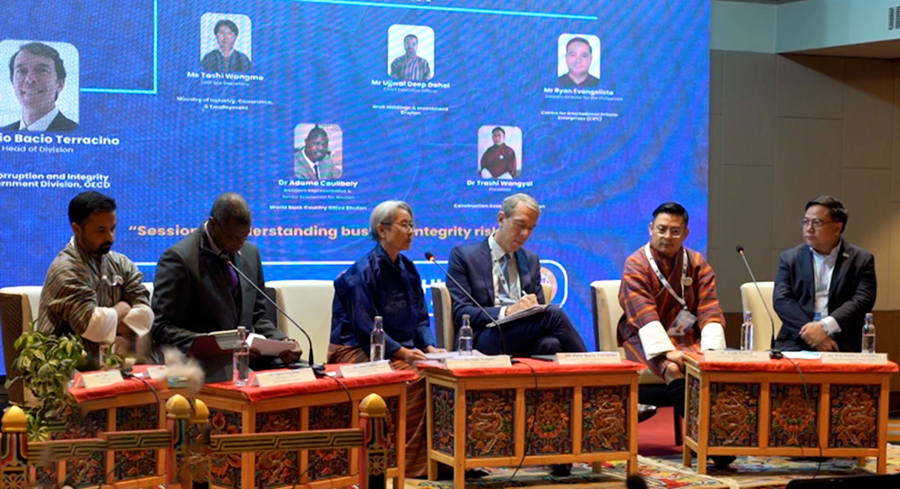
Amid growing concerns over the state of business integrity among Bhutanese businesses, international experts are urging Bhutan to capitalise on existing policies and frameworks to strengthen business integrity. This recommendation was shared at the three-day Regional Seminar on Government Incentives for Corporate Anti-Corruption Compliance, today.
 Business integrity involves conducting operations diligently, adhering to ethical standards, and ensuring transparency and accountability.
Business integrity involves conducting operations diligently, adhering to ethical standards, and ensuring transparency and accountability.
During the seminar, Tashi Wangmo, Secretary of the Ministry of Industry, Commerce and Employment, highlighted corruption through favouritism, nepotism, and other unethical practices as major concerns for businesses in Bhutan.
She also pointed to conflicts of interest and challenges in regulatory compliance as key issues affecting business integrity in the country.
According to the Anti-Corruption Commission, a lack of awareness around business integrity is further undermining the business environment in Bhutan.
Rinchen Namgay, the Head of Policy and Planning at Anti-Corruption Commission said “By looking at some of the indicators or indications that we get from the environment that we operate in, there are a few corruption cases that are coming with regard to private sector and businesses. And there are also corruption reports of fraud or some malfeasance and misfeasance going on with regard to businesses. So, this is only indicating that our business sector is equally vulnerable, if not more.”
He added that businesses should strengthen their capacities in understanding and implementing standards and tools necessary for running a corruption-free enterprise.
Similarly, the head of anti-corruption at the Organisation for Economic Co-operation and Development said there is a need for Bhutanese businesses to collaborate with the government in creating policies and frameworks that improves the private sector’s integrity.
Julia Fromholz, Head of Anti-Corruption at Organisation for Economic Co-operation and Development said “It is very important to build a culture in both the public and private sectors in which people feel empowered to report if they see corruption or other lack of integrity. It is important to know that they will be protected against retaliation.”
She added that governments could also incentivise businesses that comply.
According to the Anti-Corruption Commission, the seminar offers participants a platform to exchange best practices, build capacity, and foster strategic collaborations to enhance integrity and combat corruption across all sectors.
More than 50 international anti-corruption experts and practitioners from 18 member countries are attending the seminar, alongside government officials, representatives from international organisations, civil society, and the private sector.
The ACC is co-hosting the seminar in partnership with the Asian Development Bank and the Organisation for Economic Co-operation and Development.
Tashi Dekar
Edited by Sherub Dorji









